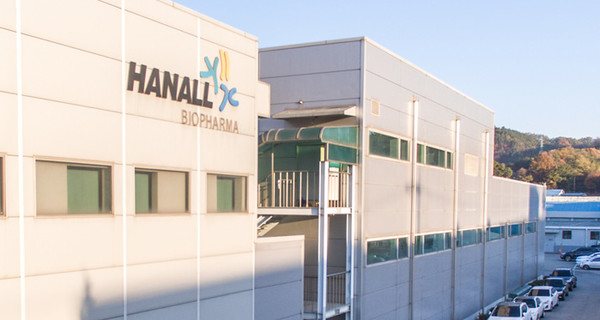HanAll Biopharma’s U.S. partner Immunovant said it will present six-month post-treatment remission data for its investigational autoimmune therapy batoclimab (HL161BKN) in Graves’ disease at the American Thyroid Association (ATA) Annual Meeting in Arizona on Sept. 10-14, 2025.

HanAll Biopharma expects the findings to provide critical evidence of the long-term therapeutic potential of batoclimab and its next-generation FcRn inhibitor, imeroplubart (HL161ANS), in managing Graves’ disease.
Graves’ disease is an autoimmune disorder in which the immune system overstimulates the thyroid gland, leading to excessive hormone production.
Symptoms range from weight loss and palpitations to anxiety and fatigue. While antithyroid drugs (ATDs) are the standard first-line treatment, a substantial number of patients either relapse or fail to respond due to side effects or inadequate efficacy.
In the U.S., the disease affects an estimated 880,000 people, with about 330,000 experiencing relapse or treatment failure. Around 65,000 new patients are diagnosed annually, and roughly 20,000 of them struggle to achieve symptom control even after second-line therapy, underscoring the need for new treatment options.
Among FcRn-targeting agents in development or on the market, batoclimab and imeroplubart are the most advanced candidates directly targeting Graves’ disease. If their long-term disease control is confirmed, they could become the first-in-class therapies for the condition.
Treatment complexity is further heightened by the fact that about 30 percent of Graves’ disease patients also develop thyroid eye disease (TED). When ATDs are combined with steroids to address both conditions, overlapping toxicities and drug–drug interactions can occur, making disease management more challenging. While several companies are developing TED-specific drugs, there are few options capable of simultaneously addressing both disorders.
Immunovant is currently conducting a phase 3 trial of batoclimab in TED, with topline results expected by the end of this year.
In earlier phase 3 trials for myasthenia gravis, batoclimab demonstrated a favorable safety profile, with very few treatment discontinuations due to adverse events such as decreased albumin levels (5.3 percent in the high-dose group, 3.8 percent in the low-dose group, and 3.6 percent with placebo) and no cases requiring dose reduction.
“We look forward to sharing the batoclimab remission data in Graves’ disease at the ATA Annual Meeting, which we believe will further underscore the therapeutic potential of our FcRn pipeline," Immunovant CEO Eric Venker said.
HanAll Biopharma CEO Jeong Seung-won also said, “The data to be presented this fall will be an important milestone in demonstrating HL161BKN’s potential for long-term disease control and differentiated therapeutic value.”
If the upcoming phase 3 TED results are also positive, HanAll believes HL161BKN could bring new hope to Graves’ disease patients who currently lack effective treatment options, Jeong added.

